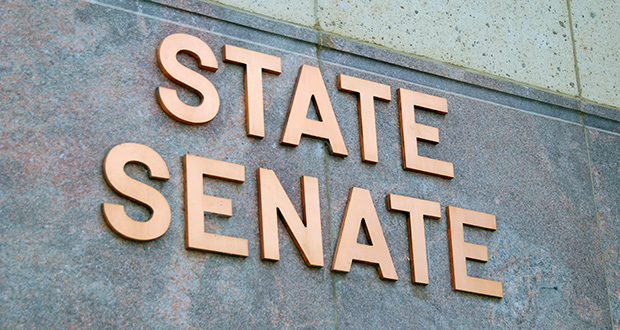Tag: doug ducey
Capitol pivots to create agenda for special session(s)

Lawmakers and staff are preparing for multiple special legislative sessions to address COVID-19 and economic recovery now that the regular session has officially ended.
While the Capitol has been treating at least one special session as something of an inevitability for weeks, the Senate’s abrupt adjournment on May 26 has hastened that fact. The chamber finished its labors without debating a pair of COVID bills that originated in the House, effectively adding them to the agenda for a forthcoming special session.
Legislators are shifting their focus to those sessions, where they can “address economic stimulus and recovery initiatives, liability concerns, meet the health and human services needs of the state and other legislation related to the COVID-19 pandemic,” Senate President Karen Fann, R-Prescott, said upon adjournment May 26.
Gov. Doug Ducey has committed to calling lawmakers back for two special sessions, one on economic issues and one to address the budget, Fann said. She said she expects at least one to be held in the next 30 days.
Last week, House Speaker Rusty Bowers, R-Mesa, said he expects to return for a special session in mid-June, by which time lawmakers will have access to much-anticipated state revenue data from budget forecasters. The data will provide the most complete picture yet of how the state’s economy has fared during two months marred by the pandemic and the associated lockdown
Process
A special session provides lawmakers the opportunity to return to the Capitol to pass bills related to specific issues. The last time one was convened was in 2018, when legislators met to address the opioid crisis.
Such sessions are called in one of two ways. Typically, the governor brings legislators together for a special session under a provision of the Arizona Constitution. In that scenario, Gov. Doug Ducey would set the parameters of debate, though he can name as many subjects as he’d like.
This is the most likely path forward, said Rep. Regina Cobb, who chairs the House Appropriations Committee.
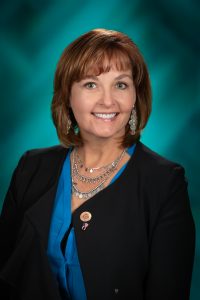
“We have been in talks with the Governor’s Office once a week for the last three or four weeks,” the Kingman Republican said. “They definitely know that they need to call a special session and they’re ready to do it.”
One of these sessions would likely examine the state’s revenues, and would also include additional funding for the state’s COVID-19 response. By then, legislators will have a better estimate of the state’s budgetary shortfall – which, as of the most recent estimate, could range from around $500 million to around $1.6 billion.
At least 831 Arizonans have died of COVID-19, according to the most recent data from the state Department of Health Services. Even as much of the state has begun to reopen, the department reported 479 new cases on May 27.
Cobb said all options for balancing the state’s books are on the table – at least all options that Republicans would vote for, meaning that a tax increase is highly unlikely. Fund sweeps, though unpopular, are on the table, she added, as is using the $1 billion rainy day fund and cutting agency budgets. Cobb expects the second special session to address economic stimulus.
“We need to make sure our economy gets a jump start,” she said.
If for whatever reason Ducey doesn’t call a special session, legislative leaders can convene their own under another provision of the state Constitution – but only with a two-thirds majority.
This would require Democratic and Republican leadership to broker a deal of some kind. Either they agree to begin a special session and fight over its content after the fact, or agree to a special session with limited parameters beforehand. “If we can’t even agree on that, then how would we ever, ever govern,” said House Minority Leader Charlene Fernandez, D-Yuma. “That would be a clear picture to Arizonans that there’s total dysfunction.”
Either way, if the last two weeks are any indicator, it could be ugly.
Partisanship
Even if Ducey calls a special session, a smooth, bipartisan process seems unlikely.
“I always have the hope that we can do that,” Cobb said. “But every time the efforts are futile. It’s always one issue that separates us, one policy. Everybody digs their heels in, and then it becomes a partisan thing.”
But Fernandez said the situation for Arizonans is too dire to ask for half-measures just for the sake of creating goodwill with the majority party. She wants a special session that’s “laser-focused” on COVID-19, and then a separate one to deal with the state’s finances and economic recovery.
One priority is fixing the state’s unemployment system, particularly ensuring that Arizonans get their benefits on time and in full. But Democrats also want to bolster unemployment payments even after the nationwide emergency declaration ends, which likely will be a non-starter for Republicans.
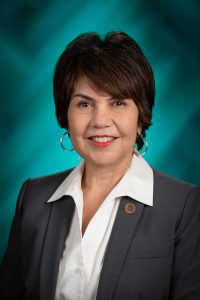
Fernandez said her caucus has split into working groups that are studying different aspects of the state’s response, from imagining how schools will open in the fall to fixing unemployment insurance.
“It’s definitely going to be hot-button, but it’s worth it right now,” she said.
Regardless, she said there’s no choice but to broker peace with the Republicans, as unlikely as that may seem.
“How that’s going to happen, I don’t know,” she said. “We never have before. Certainly we’re not going to show them a piece of legislation and they’re going to throw their names on it, but hopefully this is a starting point.”
A few of the 28 House bills on the Senate’s calendar on May 26 – bills that died when moderate Republicans joined Democrats in voting to terminate the session – could make a reappearance, Fann said.
Unfinished Business
“We have some really good economic development (legislation) which can be COVID-related bills, so yes, and hopefully we get as many as possible,” the Senate president said.
One House bill that wasn’t on any calendar but that will make an appearance – albeit likely in a much-revised form – is Rep. John Kavanagh’s HB2912, a measure to protect businesses and nonprofit entities from legal liability if a patron or employee gets COVID-19.
Republican Sens. Eddie Farnsworth of Gilbert and Vince Leach of Tucson have been working on their own versions in the Senate, while Ducey staffers are working with the Arizona Chamber of Commerce and Industry to draw up their own liability measure. Democrats, meanwhile, are pushing for a chance to participate in drafting discussions, using as leverage the fact that the proposal needs Democratic votes to secure an emergency clause that would allow the bill to be enacted as soon as the governor signs it.
The bill from Kavanagh, a Fountain Hills Republican, would require plaintiffs who sue a business after contracting the virus to prove the defendant acted in “gross negligence” based on “clear and convincing evidence,” increased legal standards. The House passed that bill on party lines last week, but it failed to get traction in the Senate. The House also passed HB2913, which would appropriate tens of millions of dollars in federal CARES Act monies to child care centers, though that too did not get a hearing in the Senate.
The upper chamber had substantial disagreements about both of those bills, said Sen. Kate Brophy McGee, R-Phoenix.
“You look at that liability bill, and it bops the governor over the head,” she said, referencing provisions that decriminalize violations of Ducey’s COVID executive orders.
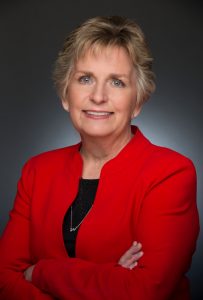
Brophy McGee, along with fellow moderate Sens. Heather Carter of Cave Creek and Paul Boyer of Glendale, have long pushed for the Legislature to focus its efforts on COVID-19. Their votes with the Democrats to end the session on May 26 fit within that framework.
A liability protections bill might win over Democrats if it includes provisions that compel businesses to follow federal health and safety guidelines if they reopen. And it might find broader support among the state’s cities and towns if it includes legal protections for public entities, said Nick Ponder, the legislative director for the League of Arizona Cities and Towns.
“If we are required to open and required to maintain the same line that the Governor’s Office has maintained … then I think that we should also consider not exposing local governments to further litigation,” Ponder said.
Education
Child care and education are also likely to be on the agenda. In addition to a renewed effort to appropriate CARES Act monies for child care centers, Brophy McGee and Democratic Sen. Lela Alston of Phoenix want to pass legislation that would allow relatives caring for children who can’t stay with their parents to access child-only Temporary Assistance for Needy Families benefits, as well as a bill to increase the monthly stipend for those temporary guardians to $250 from $75 — non-related foster parents receive $600
monthly.
And educators want to be a part of the negotiations to ensure that public education budgets aren’t slashed to help right the state’s fiscal ship, said Stacey Morley, the government affairs director for Stand for Children Arizona.
The reason is simple, she said. The majority of school budgets go toward payroll. Cutting those budgets means layoffs, which would contribute to the state’s already dire unemployment figures.
“You want as many people working as possible,” she said.
Schools to resume
Ducey aide: Nightclubs should remain closed under guidelines
Get 24/7 political news coverage and access to events honoring top political professionals
Ducey lets Federal aid begin to flow to cities, towns
Court should support jury verdicts, businesses over trial attorneys
As a conservative Republican who has dedicated my life to public service, I have always appreciated the importance of government partnering with business. I was pleased when Gov. Doug Ducey selected U-Haul International’s Tempe manufacturing and technical facility as the back-drop for his 2018 campaign kick-off. Right here in Arizona, U-Haul employs tens of thousands of hard-working Arizonans in its Phoenix corporate headquarters, manufacturing facilities, stores and local dealerships, supporting local businesses and our state’s vibrant economy.
That’s why, as chair of the House Transportation Committee, I was very disappointed when it recently came to my attention that in February 2020, the Arizona Court of Appeals overturned a jury defense verdict in favor of U-Haul, after a four-week jury trial, based solely on one sentence found in 13 pages of jury instructions.
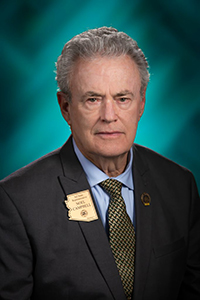
In the lawsuit, the plaintiffs claimed that U-Haul violated Arizona law because it did not put brakes on a tow dolly. As a resident of Yavapai County, avid motorcyclist, and citizen legislator I spend a great deal of time driving. U-Haul’s tow dollies are used to tow vehicles – the front wheels of the vehicle are placed on the tow dolly and the rear wheels of the vehicle ride on the street – and can be towed either using a customer’s vehicle or a U-Haul truck. For 50 years U-Haul had reasonably relied on its testing and science that brakes were not necessary on tow dollies.
In fact, in 2018, the Arizona Legislature, in a bill first heard in the House Transportation Committee, clarified Arizona’s law and expressly stated that tow dollies do not need to have brakes. With Arizona juries, common sense prevailed. The jury in the lawsuit came to the exact same conclusion when it found in favor of U-Haul, even though the jury was never informed that the Legislature had separately clarified the law. According to the Court of Appeals, the re-trial would involve the exact same issue already presented to the first jury – whether the lack of brakes on U-Haul’s tow dolly caused the accident involved in the litigation.
I am pleased that the Arizona Chamber of Commerce & Industry, Truck Renting & Leasing Association, Arizona Association of Defense Counsel, and PLAC Product Liability Advisory Council all intend to file amicus briefs in support of the jury’s defense verdict and U-Haul. They know jury trials of this magnitude and length are costly for the citizens of the state of Arizona. First, the court’s resources and funds spent by the parties for a trial of this length are significant. Second, a jury of ten individuals already had to forgo nearly a month of their own time and their jobs to hear this case in 2018. Unless the Supreme Court steps in and reverses the Court of Appeals’ decision, this issue will be tried again, in front of another jury, on the same issue that has been decided in favor of U-Haul, at a great cost to the economy and the citizens of this state.
We must focus on growing our economy by developing policies that protect consumers and support business, while defending against those who attempt to damage our way of life, especially given the current economic climate.
Noel Campbell is chair of the Arizona House Transportation Committee, a legislator from Yavapai County, and may be reached at ncampbell@azleg.gov.
Senate abruptly adjourns, House bills go down without vote
Arizonans dining out at higher rate than most of the country
Get 24/7 political news coverage and access to events honoring top political professionals
Senate to resume Tuesday to vote on House bills
State senators return to the Capitol on Tuesday with the goal of finally finishing out the on-again off-again session that began in January.
But it remains to be seen whether there are the votes for — or even the interest in considering — two last-minute measures approved Thursday by the House before it shut down its session.
The more controversial of these, HB 2912, would limit the liability of businesses facing lawsuits from patrons and customers who claim they contracted COVID-19. It would require them to prove not just that the business was negligent in its operations but that that it was grossly negligent — essentially that there was a conscious and voluntary disregard for reasonable standards of care.
But it’s not simply a matter of lining up the necessary 16 votes. There’s also a procedural issue.
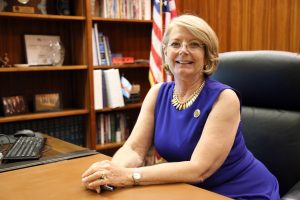
Senate President Karen Fann, R-Prescott, said she is looking to wrap up all unfinished business on Tuesday.
Only thing is, Senate rules require that any bills that arrive from the House go through a formal process.
That includes a mandate to read all bills three times — on three separate days. That would drag the process into Thursday.
And patience may be running out for senators, who voted 24-6 earlier this month to say they were ready to go home.
That same problem exists for HB 2913.
It would provide authorization for the state to spend $88 million it is getting to provide forgivable loans to child care facilities. But it, too, needs three readings.
What could be done in one day, Fann said, are 28 House-passed measures that already have been through the first two readings and could be acted on immediately. Fann also said she has weeded through these and eliminated any that might stir up controversy.
That’s not to say that all legislative business is done for the year or that the liability protections and child care measures are dead if they don’t get a vote on Tuesday.
Fann said she is anticipating a special session focused on issues limited to the fallout and reaction to the pandemic that has crippled segments of the Arizona economy. And that, from her perspective, includes some liability shields for “mom-and-pop businesses” that reopen and follow guidelines of the Centers for Disease Control and Prevention for things like distancing and sanitation.
“If someone were to come in later try to claim they got COVID-19 going into their business … then the small business owners is having to defend all these potentially frivolous cases,” Fann said.
Some of that may take care of itself now that Gov. Doug Ducey has lifted some of the restrictions he placed on businesses, including the closure orders. But they continue to have to operate in a limited fashion, including “social distancing” requirements that have effectively capped the number of customers who can go into everything from grocery and hardware stores to bars, restaurants and, when they reopen, movie theaters.
The question for senators whenever they take up the issue is whether the lawsuit protections approved by the House are too broad.
It contains no specific “safe harbor” to protect businesses that comply with CDC standards, one of the things Fann said she wanted. Instead, it contains the requirement to prove gross negligence to be able to sue for damages.
“I haven’t had a chance to go over the bill,” Fann said Friday, saying she will be reviewing it over the weekend.
Other Republicans, like Sen. Paul Boyer, also told Capitol Media Services they have some questions about raising the standard to sue to gross negligence.

Sen. Eddie Farnsworth, R-Gilbert, who helped craft the House bill and will be promoting its Senate approval on Tuesday, defended not tying liability limits to compliance with specific standards.
“Standards change,” he said. And Farnsworth said there are problems with tying the ability of a business to defend itself to any particular standard.
One, he said, is practical. Consider the requirement for “social distancing” to keep six feet between individuals or, at least, between groups of customers.
“How does he force customers not to be within six feet?” Farnsworth asks, other than kicking them out of the business.
Then there’s the problem of a situation where maybe the tables are only five feet apart. Farnsworth said that should not lead to the possibility of a lawsuit.
And then, he said, it does not take into account that not all businesses are alike.
“A salon industry is much different than a restaurant industry,” Farnsworth said. So, too, he said, are doctor’s offices.
“So a one size for all doesn’t work,” Farnsworth said.
There’s something else that could doom the bill.
The other key provision eliminates the ability to charge those who violate a gubernatorial executive order during an emergency with a misdemeanor, complete with a possible $2,500 fine and six months in jail and, for business owners, the potential loss of license. It would be replaced by a $100 fine.
Ducey, who has used that threat of a criminal conviction to urge compliance, has so far sidestepped questions about whether he would sign or veto the measure. But Boyer questioned whether it’s wise to even put him in that position.
“I don’t like poking the governor in the eye,” he said.
Among the 28 bills that Fann wants Senate action on Tuesday are:
– Requiring schools to teach information about the Holocaust and other genocides at least twice between grades 7 and 12;
– Allowing judges to set aside convictions of certain traffic offenses, including driving on a suspended, revoked or canceled license;
– Prohibiting school districts and charter schools from hiring people not certified as teachers if they have been convicted of certain crimes;
– Requiring that one member of the State Liquor Board be a currently elected city or town official;
– Mandating that students who have to attend defensive driving classes be taught about laws that require them to move over when approaching an emergency vehicle;
– Extending state laws that put $1 of every motorcycle registration fee into a special Motorcycle Safety Fund;
– Increasing the required qualifications to run for and serve as state mine inspector.


